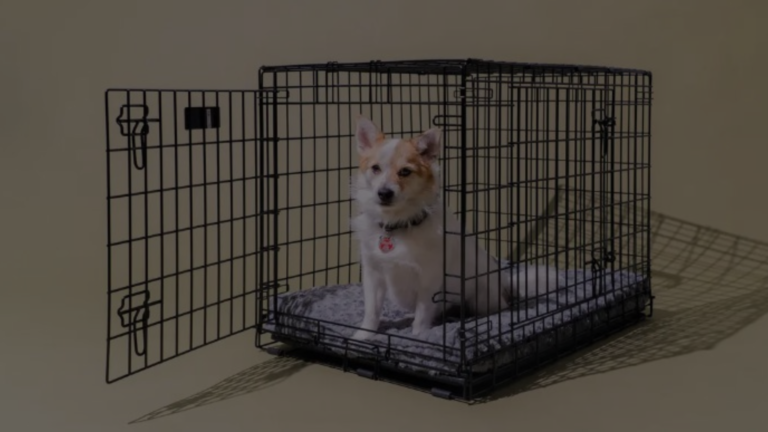The iconic image of a kitten lapping up a saucer of milk is deeply ingrained in popular culture. However, the reality is far more nuanced, and the question of whether kittens can drink milk from a dog requires a closer look. Let’s delve into the world of feline nutrition and separate fact from fiction to ensure your adorable furball thrives.
Can Kittens Drink Milk from a Dog?
Yes, in emergencies, kittens can drink milk from dog mothers. However, it’s essential to note that this should only be a temporary measure. Let’s explore the details:
- Dog Milk and Kittens:
- Dog milk is higher in fat and calories compared to cat milk. As a result, it could potentially make a kitten obese if consumed regularly.
- Additionally, some kittens may be allergic to the milk proteins found in dog milk, leading to digestive issues.
- Advantages and Risks:
- In emergency cases, giving dog milk to kittens won’t harm them and might even save their lives when no other options are available.
- However, ideally, kittens should be fed by their cat mother to ensure proper nutrition and development.

Remember that while dog milk can be a temporary solution, it’s crucial to prioritize feeding kittens with appropriate kitten formula or seeking professional advice if needed.
Why Kittens Shouldn’t Drink Dog Milk
While the idea of a kitten enjoying a dog’s milk might seem harmless, several factors make it unsuitable:
Lactose Intolerance
As kittens mature, their bodies lose the ability to efficiently digest lactose, the sugar found in milk. Drinking dog milk, which contains lactose, can lead to digestive issues like diarrhea, vomiting, and abdominal discomfort.
Nutritional Imbalance
Dog milk differs significantly from cat milk in its nutritional composition. It lacks essential nutrients crucial for kitten development, such as taurine, an amino acid vital for vision and heart health. Relying solely on dog milk can lead to malnutrition and health problems.

Hygiene Concerns
Sharing milk between animals poses hygiene risks. Both cats and dogs can harbor parasites and bacteria that can be transmitted through bodily fluids like milk.
Alternatives for Nourishing Your Kitten
- Mother’s Milk: For young kittens (up to 8 weeks old), their mother’s milk is the ideal source of nutrition. It provides all the necessary nutrients and antibodies to support their growth and development.
- Kitten Formula: If orphaned or separated from their mother, kittens require a specialized kitten formula. These formulas are formulated to closely mimic cat milk in composition and digestibility, ensuring optimal nutrition. Consult your veterinarian for guidance on choosing the right formula.
- Fresh Water: Regardless of their milk source, kittens need access to clean, fresh water at all times. This helps them stay hydrated and supports essential bodily functions.
A Holistic Approach to Kitten Nutrition
Once kittens reach weaning age (around 4-6 weeks), their dietary needs shift. Gradually introduce them to high-quality kitten food formulated for their specific age and developmental stage. These foods provide the protein, fat, vitamins, and minerals necessary for their continued growth and health.
Additional Tips for Raising a Healthy Kitten
- Regular Veterinary Checkups: Schedule regular checkups with your veterinarian to monitor your kitten’s growth, address any health concerns, and receive personalized advice on nutrition and care.
- Gradual Transitions: Introduce new foods slowly and monitor their response. Any signs of digestive upset indicate a need to adjust the diet or seek veterinary guidance.
- Portion Control: Avoid overfeeding your kitten, as this can lead to obesity and related health problems. Follow the feeding instructions on the kitten food packaging and adjust as needed based on your kitten’s individual needs.
- Hygiene and Sanitation: Maintain a clean litter box and feeding area to prevent the spread of bacteria and parasites.

Remember: Every kitten is unique, and their individual needs may vary. Always consult your veterinarian for personalized advice on feeding your feline friend and ensuring their long-term health and happiness.
Resources & References
- American Veterinary Medical Association: https://www.avma.org/
- Cornell University College of Veterinary Medicine: https://www.vet.cornell.edu/
- World Small Animal Veterinary Association: https://wsava.org/
- National Kitten Coalition: https://kittencoalition.org/
Disclaimer: This article is for informational purposes only and should not be interpreted as veterinary advice. Always consult with your trusted veterinarian for personalized recommendations regarding your kitten’s health and nutritional needs.
FAQs- Kittens and Dog Milk
Is it okay for kittens to drink a little bit of dog milk?
While a tiny sip might not cause immediate harm, it’s best to avoid offering dog milk to kittens altogether. Most adult cats are lactose intolerant, meaning they lack the enzyme to digest milk sugar (lactose). Even a small amount can lead to digestive upset like vomiting, diarrhea, and gas.
Won’t dog milk provide nutrients essential for kitten growth?
No, dog milk isn’t suitable for kittens’ nutritional needs. It lacks specific nutrients crucial for feline development, including the amino acid taurine, vital for vision, heart function, and digestion. Kitten formula or high-quality wet kitten food specifically caters to their unique dietary requirements.
What if my kitten seems to love dog milk and begs for it?
Kittens might be drawn to the smell and taste of milk, but resist the urge to give in. Lactose intolerance isn’t always immediately obvious, and even seemingly mild symptoms can affect their internal health. Opt for safe alternatives like kitten formula or wet kitten food that satisfy their cravings without the drawbacks.
Is there any situation where dog milk might be necessary for a kitten?
Never. If a mother cat cannot nurse her kittens, their specific needs should be addressed by a veterinarian immediately. They will recommend specialized kitten formula and guide you on proper feeding techniques to ensure optimal growth and development.
What are some healthy alternatives to dog milk for kittens?
- Kitten formula: Specially formulated to provide complete and balanced nutrition for kittens of all ages, mimicking the composition of their mother’s milk.
- High-quality wet kitten food: Protein-rich and formulated for kittens, it offers essential nutrients, hydration, and taurine crucial for their development.
- Freshwater: Always ensure your kitten has access to clean, fresh water throughout the day. Hydration is vital for their overall health and well-being.







